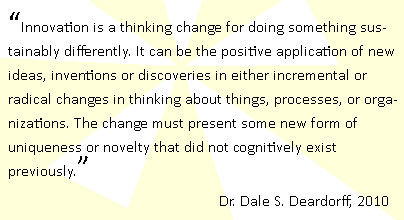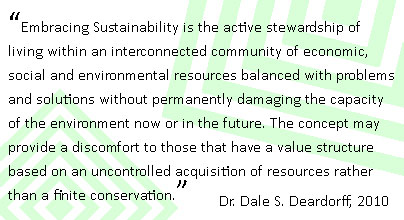|

Youth Leadership and its influences on Today’s Organizations
Today’s organizations are a complex and dynamic environment that evolves daily with unexpected challenges for performance within cost and schedule constraints. Future employees are being groomed prior to entering the workforce to assess the risks, opportunities, influences on what happens day-to-day, and predict the future of the business. These individuals will be required to work together in virtual teams and to connect through methods that will allow synergy on a scale never experienced before. They tag, tweet, IM, Google, podcast, and bring their own paradigms and mental models with them. Outdated companies had best beware, these future employees are technologically driven and carry electronic notebooks not paper.
Research shows that young adults who participate in youth development and leadership programs are more likely to do better in school, engage in volunteerism, and move more positively into adulthood. This is accomplished many times because youth leadership programs and mentors help reinforce moral reasoning, self-esteem, self-control, motivation, assertiveness and self-efficacy. It is well documented that leadership can be learned but that the experiences are not equal when it comes to the effectiveness of leadership development. The research has revealed that two characteristics consistently reinforced the experience.
a) Placement in a variety of challenging situations requiring problem solving choices based upon different risks.
b) A positive and supportive environment with engaged role models and mentors providing guidance and support.
Ultimately combining experiential learning with on-the-job experiences provides the opportunity to work on new and complex problems. These advanced thinking skills are reinforces thru structured extracurricular formal and informal leadership activities. Quite a challenge for the next generations of our future coworkers as they are asked to build leadership knowledge and improve interpersonal skills to learn how to work effectively using a group process.
Youth Leadership is defined as “the practice of teens exercising authority over themselves or others in which young people gain skills and knowledge necessary to lead civic engagement, education and reform community organizing activities.” When we think about the goals of youth leadership it is to allow young adults the environment to practice and learn how to lead themselves and others in a positive direction with positive results.
Organizations are always discussing problems with communication, teamwork, accountability and performance. No longer is the real world a situation where everyone plays the game, you no longer even need to, to win! No pre-school notion of juice boxes for everyone and we don’t get trophies for trying hard and doing our best. The organizations of today are filled with individuals who don’t play well with each other and are focused on success at the cost of failure to others. This is a full contact sport!
This is a very different transition from youth to adulthood requiring an acceptance of a different & challenging moral structure. It’s hard to pick up a newspaper or see the nightly news without hearing about today’s leaders being exposed for lying, corruption, greed, intolerance, and a dismissal of accountability. Certainly this is the minority, but the exposure portrays it like an epidemic of leadership failure. Let’s face it…the idea of being a leader has a stigmatism associated with it that you must ‘sell your soul to the devil’ and become a tyrannical megalomaniac to get the results required. After 30 years of personal leadership experience in organizations, I must say that those leaders who believe this are wrong and are moving their organizations in the wrong direction.
As Leaders we should focus on leading our organizations in a positive direction by learning to become more like we were when we were younger. As leaders, we must continually update our commitment to leadership by maintaining an attitude of renewal. We must hold dear our positive motivations while we clarify our organizational values. Oscar Wilde once declared that “Most people are other people. Their thoughts are someone else’s opinions, their lives a mimicry, their passions a quotation.” You may be surprised to see that you aren’t living what you say that you value. As leaders when we openly clarify our personal values it becomes easy to see how important it is to walk the walk, and talk the talk. You are an example to everyone around you and actions speak louder than words. Everyone within your group will align themselves based off of your actions off of the values we share as a team. As leaders, it’s critical for us to set the example, and take the lead in making sure that we are portraying the positive behaviors we want to see in others.

All of us have worked on a team that was incredibly unique, different, and exciting from others. It may have had harder challenges and issues but there was something different. What was different was the Leadership’s enthusiasm and ability to turn challenges towards creating common goals that everyone can achieve. As a team there is nothing more demoralizing than working towards expectations that cannot be met. We have all had that feeling where we were asked to bring someone a rock, over and over because it was the wrong color or shape. Frustration ensues and finally a dismissal to the accountability towards doing something we can be excited and proud about.
So it seems that organizational leaders can gain a valuable lesson by looking towards our youth and listening to the values and experiences that they bring to the table. We have groomed them to work in teams and create decisions based upon consensus. They have been trained to work on collective goals with mutual expectations that are clearly defined. Additionally, they can manage conflict by opening communication and dialogue rapidly with adaptive technology and are versed in recognizing and resolving conflict for keeping their teams cohesive.
As Leaders we have intervened and expressed our desire to propel them towards their dreams. Leaders have a responsibility to mentor and share experiences to help our youth in their quest to step forward as new leaders in the society of today, and tomorrow. They can make an incredible difference because not only can they think big, they have the desire and toolset to involve positive expectancy while they are searching for a position where they can bring positive change and make a difference.
The next step is to open an opportunity for a new leader to succeed by guiding them with what we know….and listen to them describe what we have forgotten.
In the future we will hear about these new Leaders helping to solve global warming, creating a cure for cancer (and the common cold). They will help us responsibly recover from the current financial rescission & learn to lead organizations here that are globally connected and socially grounded in positive values.

Dale S. Deardorff |












